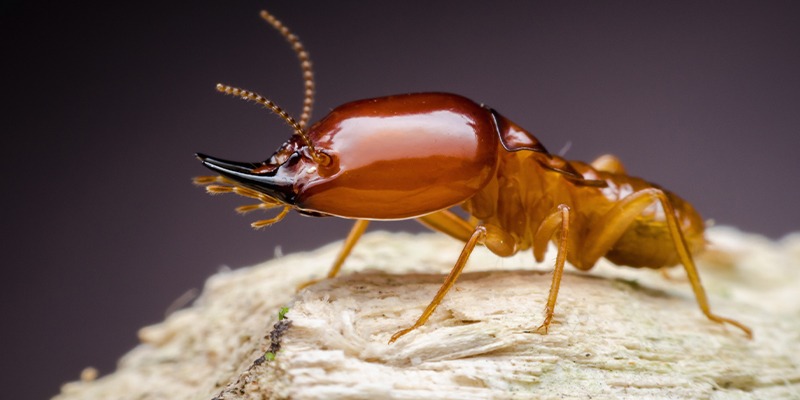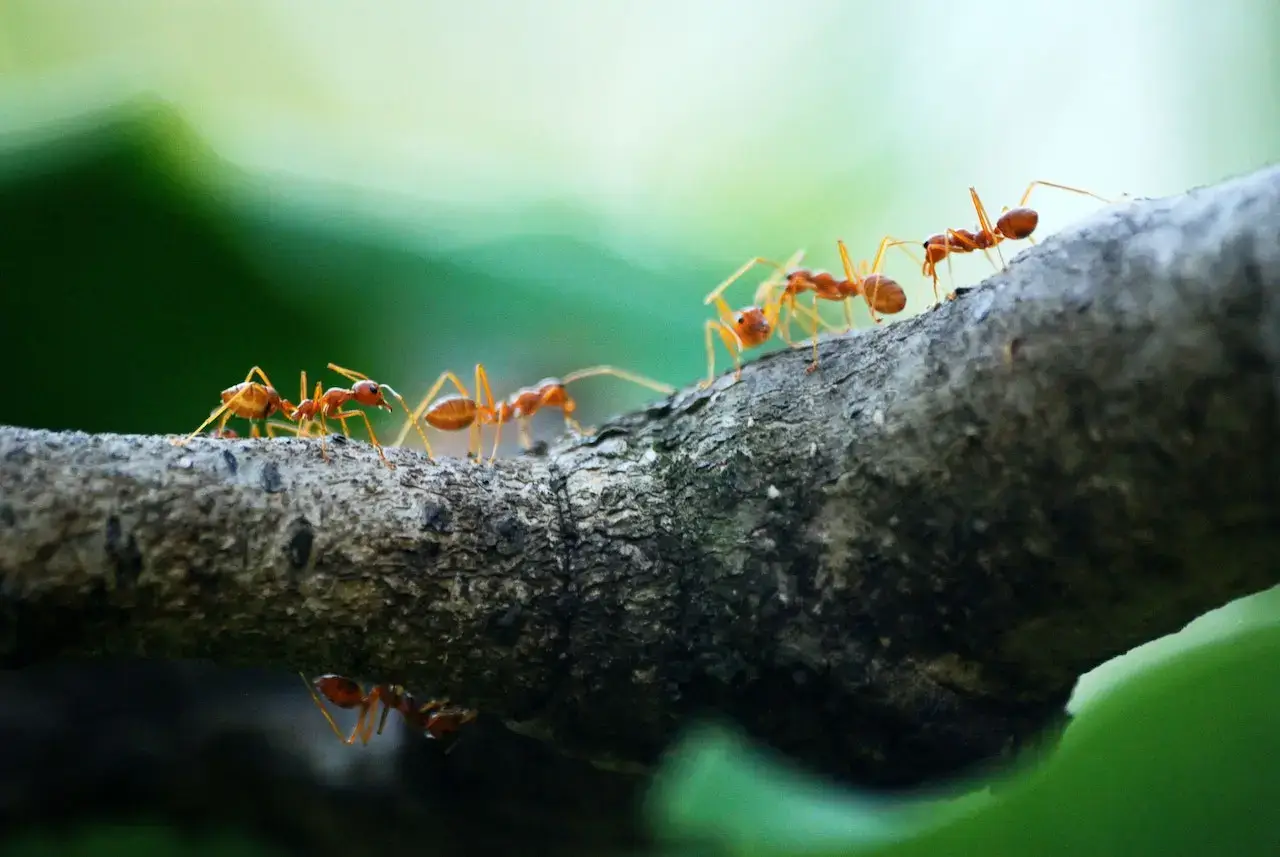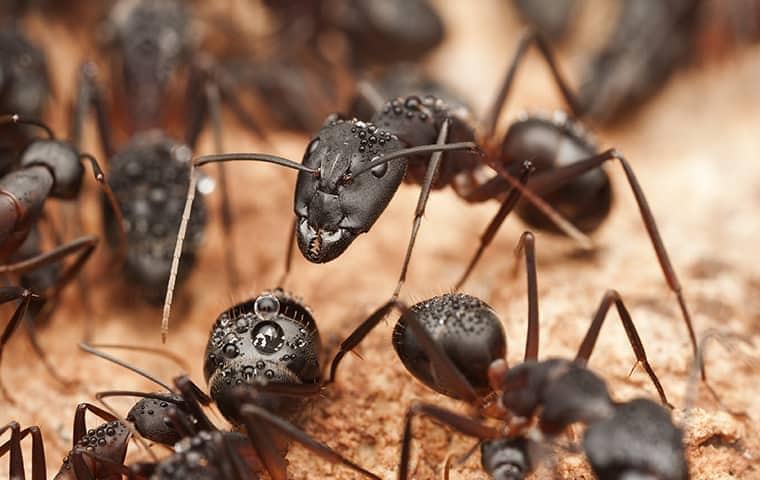Affordable Ant Control Solutions: Maintain Your Area Ant-Free
Wiki Article
Environmental Influence of Bug Control: Balancing Performance With Sustainability
The ecological influence of pest control is a critical issue that needs a fragile equilibrium in between attaining effectiveness in ensuring and handling bugs sustainability of our ecosystems. From the use of dangerous chemicals that leak right into our dirt and water to the unplanned effects on non-target varieties, the effects of conventional pest control techniques are significant.Unsafe Chemicals in Parasite Control
The utilization of harmful chemicals in parasite control presents significant environmental and health and wellness threats that necessitate mindful factor to consider and reduction methods. Pesticides, herbicides, and insecticides are typically used to eradicate pests, but their widespread application can result in unintentional repercussions. These chemicals can contaminate dirt, water resources, and the air, influencing not only the targeted insects but additionally advantageous bugs, wildlife, and humans.
To address these risks, integrated pest management (IPM) techniques are being promoted as an extra lasting alternative. IPM includes a mix of techniques such as biological control, habitat control, and the targeted usage of pesticides as a last resort (ant control waxhaw nc). By taking on a holistic approach to pest control, we can decrease the ecological and health and wellness effects related to unsafe chemicals while effectively taking care of pest populaces
Effect On Non-Target Species
Taking into consideration the unplanned consequences of parasite control techniques, the effect on non-target types is an essential facet that calls for complete examination. While bug control actions intend to target details parasites, other organisms in the community might be unintentionally impacted. Non-target types, consisting of helpful insects, birds, animals, and even plants, can endure indirect or direct damage from chemical applications or organic control techniques.Insecticides developed to deal with a certain bug parasite may hurt pollinators like or natural killers such as ladybugs. Biological control agents, if not species-specific, can pose dangers to unintended targets, interfering with the environmental balance.
To reduce the influence on non-target species, incorporated pest administration (IPM) approaches that emphasize an alternative technique to pest control are advised. These techniques prioritize the use of eco-friendly techniques, decreasing injury to advantageous organisms while properly taking care of pest populations. Conducting comprehensive risk assessments and keeping track of the results of parasite control initiatives are vital steps in protecting non-target species and advertising general community health.
Dirt and Water Contamination
Unexpected environmental consequences of parasite control techniques prolong beyond influencing non-target types, with considerable effects for soil and water contamination. Chemicals, herbicides, and chemical fertilizers made use of in insect control can seep into the soil and infect groundwater, presenting a hazard to both earthbound and aquatic ecosystems. Dirt contamination can disrupt the equilibrium of microorganisms crucial for nutrition biking and plant growth, causing decreased dirt fertility and productivity. These chemicals can linger in the environment for prolonged durations, collecting in the dirt and potentially going into the food chain.Water contamination is another critical concern linked with bug control techniques. To alleviate soil and water contamination from pest control tasks, incorporated bug administration techniques that prioritize sustainability and minimize chemical inputs are crucial.
Air Pollution From Pesticide Usage
Direct exposure to air-borne pesticides throughout farming applications presents a considerable worry for air pollution control actions. Additionally, pesticide drift, where chemicals are carried by the wind to unexpected areas, can lead to the contamination of close-by ecosystems and water bodies.
Techniques for Lasting Pest Control
In the world of farming practices, carrying out sustainable insect control approaches is vital for keeping environmental balance and guarding plant returns. Sustainable bug control emphasizes making use of eco-friendly approaches to handle pest populaces effectively while decreasing injury to non-target microorganisms and communities. Integrated Insect Management (IPM) is an extensively embraced approach that combines biological, cultural, physical, and chemical control methods to accomplish long-lasting pest monitoring solutions.One secret method in lasting pest control is promoting biodiversity within agroecosystems. By boosting all-natural opponents of bugs, such as parasitoids and killers, farmers can lower the demand for artificial pesticides. Crop rotation and diversification are additionally efficient methods to interfere with pest life process and create much Our site less positive problems for insects to grow. Furthermore, utilizing pest-resistant crop selections and utilizing techniques like trap cropping can help in reducing bug pressure without counting greatly on chemical interventions. Inevitably, by incorporating these lasting pest control strategies, farmers can attain a balance between pest monitoring efficiency and environmental stewardship.
Final Thought
Finally, the environmental impact of parasite control approaches must be thoroughly taken into consideration to stabilize performance with sustainability. Damaging chemicals used in insect control can result in soil and water contamination, air contamination, and harm non-target species - ant control services. It is essential to implement sustainable bug control approaches to reduce these adverse impacts on the setting and advertise a healthier community for future generationsBy embracing an all natural approach to pest control, we can lessen the ecological and health effects linked with damaging chemicals while properly managing pest populations.

To minimize the air pollution created by chemical usage, it is important to take on integrated pest administration strategies that prioritize the use of non-chemical insect control approaches, such as crop rotation, all-natural killers, and resistant crop selections. Lasting pest control highlights the usage of eco pleasant techniques to handle bug populaces effectively while lessening injury to non-target organisms and environments. Integrated Parasite Management (IPM) is a widely embraced technique that incorporates biological, cultural, physical, and chemical control techniques to attain long-term bug monitoring services.
Report this wiki page